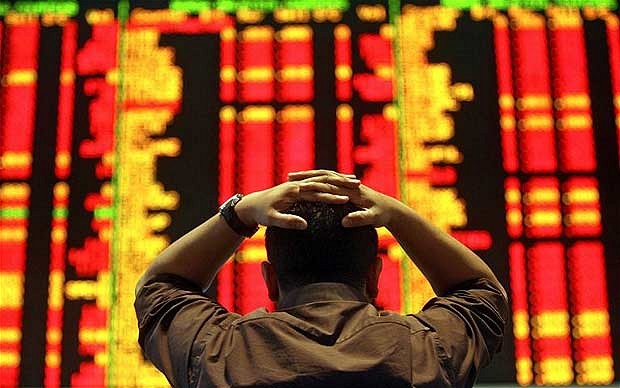A whopping 37% in March 2009 remains the largest quarterly drop the Nigerian Stock Exchange has recorded. It’s a year that will eventually see stocks fall to 33.79%, the worst on record after the 45.7% drop of the disastrous 2007.
Another type of Tsunami is underway and just like in 2010 it is already wreaking havoc on markets globally and in Nigeria. The Nigerian Stock Market lost over 18.75% in March, partly driven by the crude oil war between Saudi Arabia and Russia. The COVID-19 pandemic has also added to the woes experienced by investors culminating in a quarterly loss of 20.3%, the worst since the forgettable experience in March 10 years ago.
The losses spared very few stocks. From brewery giant NB Plc to consumer goods giants, Nestle and Unilever and Telco giant MTN, investors lost billions. Banking stocks also felt the brunt. The FUGAZ, acronym for Nigeria’s top 5 banks skids into losses some as high as 40%. The market rout took no prisoners and defied whatever fundamentals some of the most capitalized companies could boast of. Bluechips stocks are now so cheap some are now priced lower than their earnings per share.
READ MORE: What Warren Buffet will do if he traded Nigerian stocks
Apart from stocks, Nigeria’s Eurobond prices have also fallen drastically in the last month. Bond yields fell to as low as 12% during the month as foreign investors sold down assets in emerging markets including Nigeria. A trader informed Nairametrics that “for now foreign investors just want their money back and have instructed a fire sale of all their assets.”
Nigeria’s 2049 Eurobond Yields traded at a yield of 12.81% as prices fell to $72.94. The coupon rate for this loan about 9.2%. The shorter ended 2021, 28th January bond yields sold for $97.29 with a yield of 10.09%. Bond yields are inversely correlated to their underlying prices. The lower the price of a bond the higher the yields. A falling bond price is often associated with higher risk consideration.
The effect of the sell-offs could also be felt on the exchange rate. Nigeria’s naira first dropped to N380 at the I&E window where foreign investors buy and sell dollars before falling to as low as N390/$1/. This forced the central bank to devalue the naira to N380 for BDC’s. The naira’s one-year forward price, which gives an indication of where the currency could trade in a year’s time, fell about 11.3% against the dollar. The non-deliverable forwards market in London priced the naira at N515 to the dollar in a year’s time while naira futures contracts of the same tenor were quoted at N385.
READ ALSO: COVID-19: NSE extends time for submission of audited financial statements
The Nigerian Stock Exchange is often the bellwether for the economy and going by the extent of the losses recorded during the quarter it is nearly inevitable that we will avoid a recession. The effects of the COVID-19 lockdown is likely to get things worse just as oil prices fall below the $20 support level. This suggests we may not have seen the worst just yet.
A further devaluation could occur as the oil price war ratchets up. Nigeria’s inflation rate situation will likely get worse amidst a dwindling purchasing power. As more people struggle, slowly recalibrating their income and spending patterns, businesses will struggle to keep up with sales piling up unsold inventories. Soon, the solid fundamentals recorded in 2019 will disappear instigating a further stock market rout. Borrowers could also start to default on their loans sending non-performing loans back to levels seen in 2016.
This is the worst-case scenario. It could get better but only when oil prices rebound and the Coronavirus is defeated.











